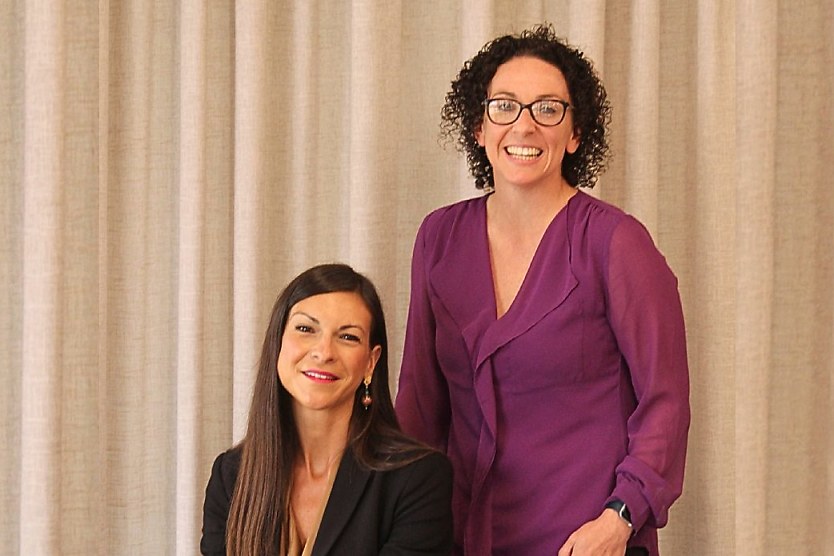
Many businesses have a long way to go in bringing women into leadership roles. Here, three professionals working at an Australian law firm share how one can truly succeed in this area.
It is well documented that men in Australia hold the vast majority of leadership roles. According to the Workplace Gender Equality Agency (WGEA), women in Australia hold 32.5 per cent of management positions, 19.4 per cent of CEO roles, and just 18 per cent of board chairs.
The opposite rings true for some businesses, including law firm Macpherson Kelley. Out of 13 principal lawyers at the firm's Dandenong office, the majority (seven) are female.
Speaking to HR Leader's sister brand Lawyers Weekly, Macpherson Kelley national HR manager Olivia Holmes said:
“Our Dandenong office is a product of what happens when a firm lives and breathes what they preach.”
“Macpherson Kelley’s purpose is to support our people professionally and personally and, for many of our female leaders, this support has carried them from their early life and career through to the senior roles they occupy now.”
The office’s female dominance is unique in Dandenong, with the areas business sector mainly holding male-dominated industries, like manufacturing.
The managing principal lawyer overseeing the Dandenong office, Kelly Dickson, has made use of the firm’s Flex+ policy for 10 years to support her professional and personal responsibilities.
Ms Dickson said that the mere fact that a managing principal lawyer can work flexibly, demonstrates to all staff that flexible work is not just an attraction incentive but an attainable reality.
“Let’s be honest, part-time work comes with its challenges, but I’m proud to show our staff that gender and part-time work status are not impediments to achieving career goals,” she stated.
“Working flexibly is a team effort, and our Dandy office’s willingness to live our firm values and ‘play as a team’ is what makes it work for all of us.”
Out of the seven female principal lawyers and managers, five work part-time, and four have taken advantage of the firm’s parental leave policy at some point in their careers.
Longevity within the firm is also a point of pride, the firm said, with four out of the five female principal lawyers having been with Macpherson Kelley for over 12 years.
One of these is Belinda Sigismundi, who holds one of the highest client satisfaction ratings in the firm — much of which she credits to the firm’s ethos and culture.
“One of the highlights during my 18 years at Macpherson Kelly was being promoted to principal lawyer as I was about to head off on parental leave with my second child,” said Ms Sigismundi.
“The timing of this promotion sent a powerful message to other women in the firm — that you can have a family and still progress in your career.
“It is a message that continues to permeate the incredible culture at Macpherson Kelley, which is based on respect, empowerment and connection.”
Ms Holmes made a pertinent comment that gender equity is not just a conversation for the here and now — it’s a never-ending commitment.
Ms Dickson spoke to Lawyers Weekly about how SME practices can follow suit in supporting women in leadership roles.
Firstly, she outlined several things that are able to have an immediate impact.
“Be curious — have the conversations with the women in your business about what they need to help them fulfil their work and personal responsibilities.
“Be flexible — see if you can find the ‘win’ for everyone,” Ms Dickson said.
Also, “be mindful of the little things,” she said, “move recurring meetings away from school drop-off times, don’t make a habit of sending emails or making calls to staff with children (and implying a culture that expects immediate response) at kids’ dinner time/bath time/bedtime”.
“Be real,” she said, “tokenism doesn’t help anyone”.
“Longer term, businesses should be having serious board and management discussions, and putting plans in place to formulate, promote and report on (and be publicly accountable for) the organisation’s performance on things like pay parity, equal gender representation, quotas, parental leave, paying superannuation during the period of parental leave,” Ms Dickson continued.
“All of this also needs to be underpinned by a clear cultural direction that demonstrates a positive, lived female employee experience.”
“Women’s issues are actually everyone’s issues,” Ms Dickson continued. “Women have got such great skills, capabilities, ideas, and talents!
“And giving the women in your business the supports, opportunities and encouragement they need to thrive and flourish actually only makes the business better and stronger and more successful.”
Ms Sigismundi gave advice for firm leaders in responding to sociocultural scepticism from communities or clientele.
“I think it’s really important for law firms to ‘walk the talk’, in every interaction with its people and its clients,” she told Lawyers Weekly.
“For that to happen, there needs to be a strong leadership team who is not only clear about what the firm stands for, but who also lives and breathes those values every day.”
“When you start to make exceptions and tolerate behaviour that is contrary to those values, I think that’s when law firms have cultural issues,” Ms Sigismundi asserted.
“Only a couple of years ago, I was speaking to a senior female practitioner. She is one of the best and most experienced lawyers I know in her practice area — a leader in her field.
“Despite her expertise, she recounted a time when a client was happy to accept her advice, but asked if it could be conveyed to the other side by a man, as the client thought it would have more impact,” Ms Sigismundi recounted.
“I was horrified, frustrated and angry that in 2021, a woman could be treated this way.
“I hope more law firms take a strong stance against this type of behaviour and puts its people first, no matter the cost.”
This article was originally published on HR Leader's sister brand, Lawyers Weekly.









